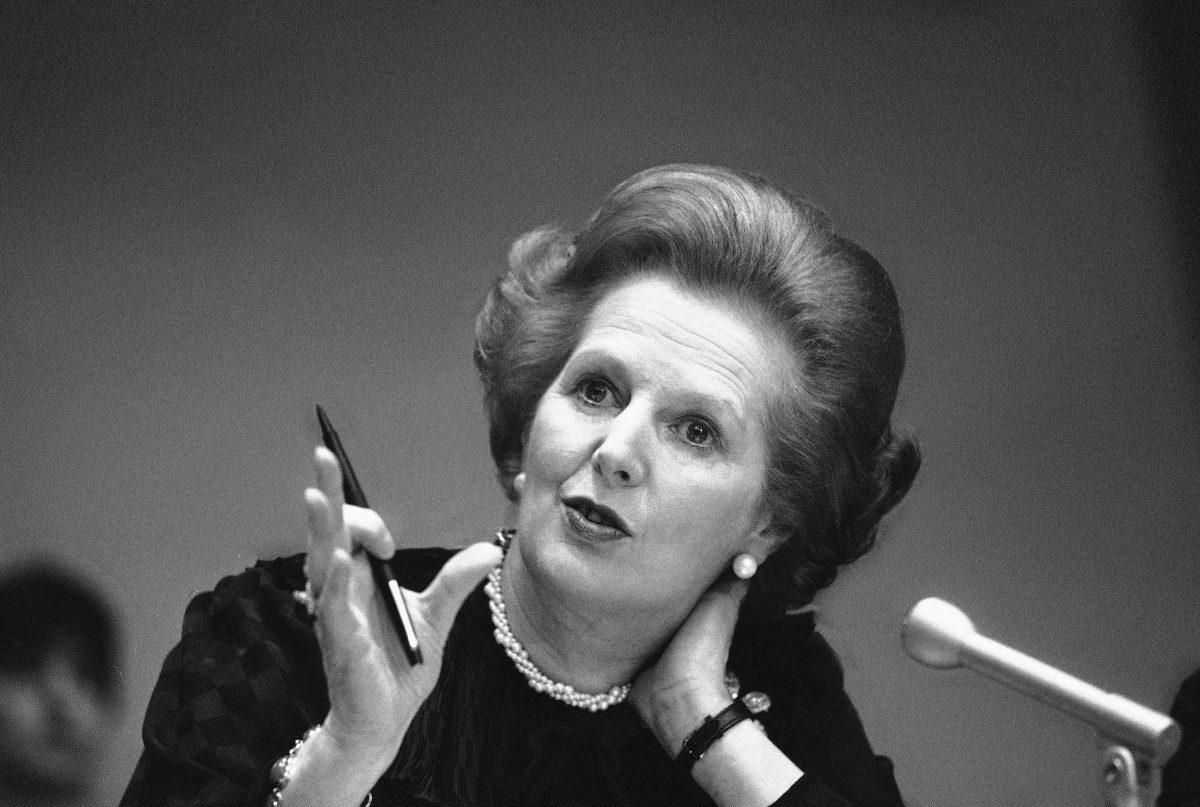Oftentimes, we liberals like to exaggerate when it comes to describing our political nemeses.
George W. Bush wasn’t actually a money-grubbing warmonger, just an easily-swayed patsy surrounded by a lot of bad influences. Mitt Romney was a shameless panderer, but his record showed he clearly wasn’t actively hateful toward poor people.
But sometimes, there comes a figure so malignant, so cruelly adherent to the worst of conservative, “me-first” ideology, that you can’t help but think some infernal force had a part to play in their rise to power.
Maggie Thatcher was one such figure.
Thatcher, prime minister of the United Kingdom from 1979 to 1990, died at the age of 87 last week of complications from a stroke after a long battle with dementia.
I guess only the good die young.
But why should we care about the life and death of a politician across the pond?
Well, hopefully, the distance will allow us a little perspective and let us see things blocked out by our myopic and rosy-glassed memories of that era.
Thatcher was Prime Minister for the entirety of Ronald Reagan’s term as president, and they shared many of the same policies. Their similarities led to a beautiful friendship forged in the fires of disregard for the needy and what Reagan apologists like to call “fierce individuality.”
During her reign, Thatcher was responsible for a sweeping set of government programs that emphasized privatization of government-run industries, a pointless and now-forgotten war in Argentina and the absolute demolition of the power of labor unions.
Thatcher and Reagan’s policies set a new course for political conservatism, one that the conservative and Republican parties still hold to today.
The fall of unions and their demonization in public discourse has led to the death of real liberalism in both the United Kingdom and the United States. Without unions, liberals lost their greatest asset in the mobilization of the working class, which ought to be their base.
On both sides of the Atlantic, the conservative parties picked up the slack and attracted poor laborers by allying themselves with socially conservative religious movements, dividing the working class against itself and making unions a dirty word in the process.
Thatcher’s big showdown was with the National Union of Mineworkers, the United Kingdom’s largest coal miners union.
When a government body threatened to close 20 mines, the NUM led a strike of two-thirds of the country’s miners, effectively stopping mining operations.
Thatcher’s government immediately declared the strike illegal, and Thatcher herself named the strikers “the enemy within, which is much more difficult to fight and more dangerous to liberty” than foreign threats. The strike was ended with the help of a riot gear-equipped army of police, more than 150 mines were closed and the “Iron Lady” was, somehow, a hero to misguided and self-righteous Brits everywhere.
Nevermind that the closings effectively destroyed the economy of Northern England, and the region is still relatively depressed to this day.
What disturbs me about all this is how the American right wing has canonized Reagan since his death. You can’t make a speech at a Republican convention without name-dropping Reagan somewhere.
It doesn’t seem like Thatcher’s memory will be held in the same light. For every post I’ve seen online referencing how Thatcher saved the British economy, there are hundreds of comments describing her with words we simply can’t print here.
Hopefully our lack of a sentimental attachment to Thatcher here in America will help us see more clearly the toxic legacy she and her like-minded
contemporaries left, and allow us to leave a more appropriate message in the time following her death.
Goodbye, Maggie, and good riddance.





